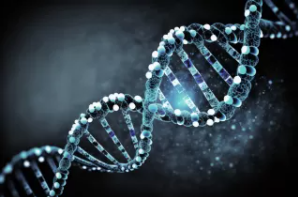Egg Donors
3 Reasons to Consider Open Sperm or Egg Donation
Thinking long term can help your decision-making process.
Key points
- Considering open egg or sperm donation can feel like an emotional decision, especially after infertility.
- It offers key benefits, like genetic information and future connection.
- Reflect on your child’s future needs when making the decision.
- Open donation is becoming more common and widely accepted
For the purposes of this article, I will focus on open donors—those who are willing to be contacted in the future. Known donors (e.g., a friend or relative) introduce additional complexities, such as the relationship dynamics, the plans for potential contact with the child, and the reactions of friends and family.
Known donation is highly specific to each situation and requires careful psychological counseling and screening, based on the guidelines set by the American Society for Reproductive Medicine (ASRM). This article will not address known donor relationships, as they are more nuanced and variable.
In recent years, public figures such as Kerry Washington, who was conceived via donor sperm, and Camille Guaty, a mother through egg donation, have shared their personal stories. Their openness has helped diminish some of the shame historically associated with donor conception. By speaking out, these celebrities have provided visibility and support for those navigating similar journeys, showing that donor conception is a valid and valuable path to parenthood.
Donor Anonymity Is No Longer Possible
In today’s world, donor anonymity is no longer possible. Advances in genetic testing technologies, including services like 23andMe and Ancestry.com, have made it increasingly likely that children conceived through donation will eventually learn about their genetic origins. Even if a donor has not consented to future contact, the reality is that genetic connections are often revealed through these platforms. With the rise of genetic testing and facial recognition technology, the era of donor anonymity is over.
Three Key Considerations When Choosing an Open Donor
- The Relationship Between You and the Donor
When a donor is open to contact, they may feel a greater sense of responsibility to the parents they helped create a family for. If a donor sees the faces of the people whose lives they are impacting, it can foster a deeper emotional connection and a sense of duty to them. Even the donors who have made a commitment to be open when the child turns 18 may be more likely to respond when contacted later on, because they’ve already made a mental commitment. - Health and Medical History
While donors are typically young and healthy, health can change over time. A donor who is healthy at the time of donation may experience significant health changes later in life. For example, a donor might one day develop cancer or another concerning illness. Other, less significant health issues may also be of interest to parents who wonder about their child's skin condition or need for glasses, for example. Having access to updated medical information can be important for your child’s health and provide you and your child’s healthcare provider with useful information. - Emotional Implications of Open Donation
Choosing an open donor can also have significant emotional implications. Many parents feel grief and loss when turning to donor conception. For parents, particularly those struggling with infertility, the decision to use donor sperm or eggs can bring up emotional challenges and the idea of a connection with the donor can stir painful feelings. However, as time goes on, and the parent and child bond deepens, the pain typically lessens, and parents often begin to desire more information that could be important to their child down the road.
Final Thoughts
When embarking on the path of donor conception, many parents focus on immediate goals: becoming pregnant, achieving a healthy pregnancy, and bringing a child into the world. These are vital milestones, but it's also essential to consider the long-term implications of your choices. The decision to choose an open donor will have lasting consequences for both you and your child. Children may have varying levels of curiosity about their donor, and some may want to connect with their genetic roots. On my podcast, I’ve spoken with donor-conceived individuals who feel a desire to learn more about their donor, while others have little to no interest. It is impossible to predict your future child's level of interest but you can make the decision to provide them with the option.
Choosing an open donor is a long-term decision that affects not only the immediate experience of becoming a parent but also offers a possibility for ongoing medical information and a personal connection. While it may seem difficult to navigate these complexities, planning for the future can help you make a more informed decision that is in the best interest of both you and your child.
To read more visit The Center for Family Building





